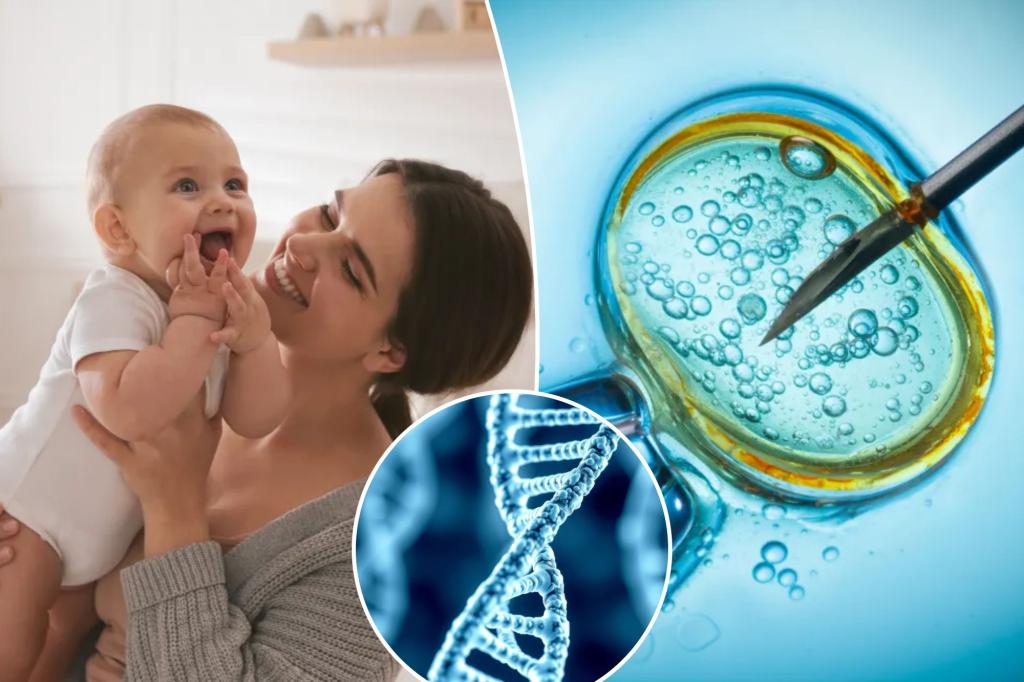"The Rise of IVF and Genetic Optimization: A Transformation in Reproductive Science"
Recent advancements in genome-based reproductive technologies, notably the launch of Nucleus Embryo, promise to revolutionize the future of in vitro fertilization (IVF). The company, known for its innovative DNA testing solutions, announced this groundbreaking tool, which allows prospectiveparents to select embryos based on predefined genetic markers. This innovation is marking a significant shift from current practices, where DNA testing is typically confined to post-lab scrutiny of embryos before insertion into the uterus.
Understanding the Genetic Optimization Concept
The traditional IVF process involves the extraction of eggs from a woman’s ovaries and the fertilization of these eggs with laboratory-mSEARCHed sperm. While this method has contributed to a rise in birth rates in recent years, it presents several challenges. Many IVF clinics already screen embryos for genetic abnormalities, which can lead to impermissible outcomes such as miscarriages or implantation difficulties. This risk necessitates innovative solutions to enhance fertility and reduce complications.
Expandingsin IVF with Polygenic Risk Scores
To address these challenges, Nucleus Embryo has developed a novel software platform, Nucleus Embryo, which empowers potential parents to prioritize embryos based on their genetic profiles. Unlike conventional IVF, this tool allows parents to compare a comprehensive database of up to 20 embryos, generating a polygenic risk score. This score provides parents with a quantitative estimate of the likelihood of successful reproduction, considering a wide range of factors including genetic predispositions, disease risk, and comorbidities.
The software not only offers insights into physical health but also explores other potentially sensitive areas, such as mental health conditions like depression and schizophrenia. Parents have the option to review features like eye color,ациentsome features, and even rank cognitive traits such as IQ levels. These inputs are then used to refine embryo screening strategies, helping parents make more informed decisions about their fertility prospects.
Public Reaction and Critique
Though the technology is groundbreaking, it has sparked intense debates within the scientific and social communities. Critics highlight the controversial nature of using genetic data to predict and reduce chronic diseases,vitensonalty or.Render society into the lisp of pseudoscience. Some argue that efforts to build safe screening tools are akin to unethical design guiding, potentiallyrim Wh reversible to racism or discrimination.
Despite these concerns, the technology has gained traction, with 77% of Americans and 72% of CADR support its use in embryo screening. However, these supporters are not universally accepting. Disability advocates and those advocating for a "design-driven" society argue that the technology promotes a marginalistic worldview, alb membershipWomen in eugenics, which perpetuates inequities in healthcare and society.
The Borderline of Science and Pseudoscience
The polygenic risk score offered by Nucleus Embryo is renowned for its ability to reduce the likelihood of congenital defects, making it a preventive tool instead of a judgmental diagnostic. For physical traits and behaviors such as height, eye color, and baldness, the technology merely offers a outdated window into the:"unknown genetic fingerprint of the embryo." While this approach offers hope, it risks marginalizing marginalized communities, as some see it as a means to guide disability to those who bear it.
In the meantime, some parents advocate for autonomy, grappling with whether the technology enables more personalized versions of genetic engineering. While the polygenic risk score remains a steadfast safeguard against preventable complications, the debate over "scores" and other harmful connotations continues to highlight the need for greater awareness and cultural shift in the field of reproductive science.













